In celebration of DC Emancipation Day, we’re taking a closer look at the remarkable life of DC native Loretta Carter Hanes. Hanes spent her life fighting for educational equality and for official recognition of April 16 as Emancipation Day in the District of Columbia.
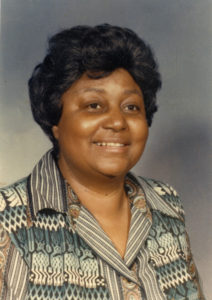
Loretta Carter Hanes was born in 1926 in Washington, DC. As a young girl, she often accompanied her mother, who worked part-time as a cook at the Stoddard Baptist Nursing Home. There Hanes listened to the residents’ stories, including one from a 102-year-old formerly enslaved man who talked of the need to “carry others across the bridge of life.” Hanes later spoke of how carrying this sentiment shaped her life’s work. After graduating from Miner Teachers College, Hanes became an instructor in the DC Colored Schools division on the eve of school integration. Hanes and her husband Wesley held after-school tutoring sessions for young people with reading problems in their Manor Park home.
Hanes joined D.C. Citizens for Better Public Education, where she met and befriended fellow volunteer Margaret Craig McNamara, wife of then-Secretary of Defense Robert McNamara. In 1966 Hanes worked with McNamara to establish Reading Is FUNdamental. Soon the program to motivate reading and supply books to children took the nation by storm. With offices in the Smithsonian Institution, and the financial support of foundation grants and industry contributions, by 1986 RIF had 3,100 projects in all 50 states and three territories.
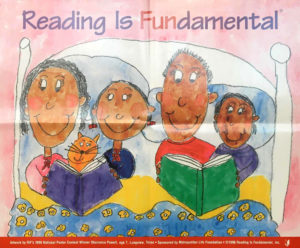
In 1974 Hanes joined the DC RIF Board of Directors and served as executive director beginning in 1981 for more than a decade. The local group had been incorporated in 1973 as a pilot project independent of the National Reading is FUNdamental program. Sponsored by the Smithsonian and the National Park Service, the DC RIF staff of three at first distributed books to DC neighborhood children through a “Summer in the Parks” program.
Hanes moved the DC RIF office from the Smithsonian to the more accessible Takoma Community School in 1976. She solicited book publishers, maintained inventories, trained volunteers, raised funds, and distributed free books to the children of DC. Under her leadership the RIF program was available for nearly 70,000 DC school children at more than 200 sites.
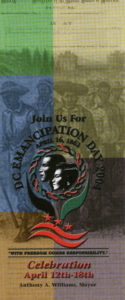
But RIF was not Hanes’s only passion. She spent considerable amounts of time conducting genealogical research in public documents, family histories, and cemetery records. She learned that a number of her forebears had been enslaved at President James Madison’s Montpelier as well as at Mount Vernon. George Washington, Hanes joked, “was the family secretary . . . he kept all the records on my family.”
In the course of research for the Bicentennial Commemoration set for 1991, Hanes discovered that a celebration was held on April 16, 1901, marking the day that President Lincoln signed the act emancipating enslaved Washingtonians in 1862, nearly a year before the Emancipation Proclamation freed those enslaved in states at war with the Union.
Inspired, Hanes spent much of the 1980s planning annual emancipation educational programs with her son Peter and historians C.R. Gibbs and Vincent De Forest to re-establish what at the turn of the 20th century had been annual emancipation celebrations. She raised awareness among DC government officials, local organizations, businesses, churches, and schools. In 1991 she organized an Emancipation Day Celebration at All Souls Church. In 1992 she led an Emancipation Day program with support from the National Park Service at Freedom Plaza on Pennsylvania Avenue NW. Determined to make Emancipation Day an official city holiday, she organized a conference on DC emancipation, began laying a wreath at the Emancipation Memorial in Lincoln Park every April 16, and lobbied local officials.
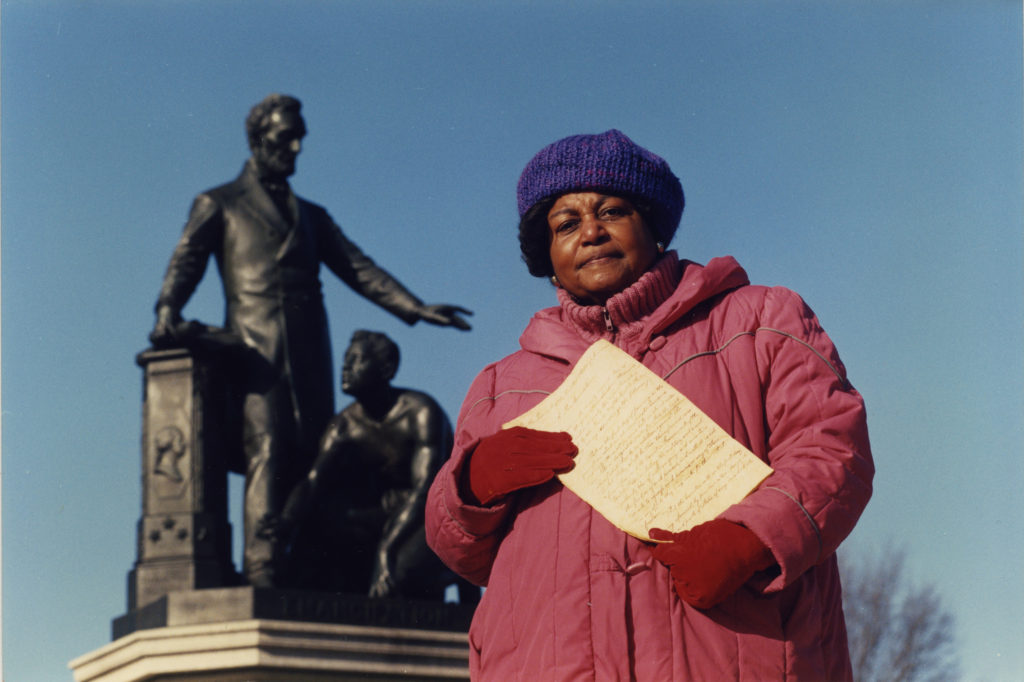
Hanes understood well the role DC Emancipation played in Lincoln’s decision to issue the 1863 Emancipation Proclamation ending slavery in the rebellious states. Knowing that the National Archives was planning to celebrate the 130th anniversary of the Emancipation Proclamation, she persuaded them to display the original document at the same time they displayed the 1862 DC Emancipation Act.
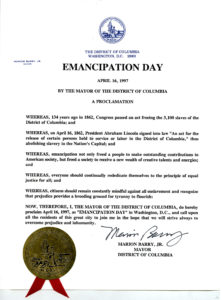
Thanks to Hanes, Mayor Marion Barry declared April 16, 1996, “Emancipation Day” in DC, and in 2005 Mayor Anthony Williams signed legislation making Emancipation Day an official public holiday in the District.
After a long life of activism for literacy, African American history, religious education, music, voting rights, environmental health protections, and service for geriatric patients, Hanes died in 2016 at the age of 90.
Today the DC History Center houses Hanes’s RIF and personal papers. The Loretta Carter Hanes collection (MS 0766) has more than 21 cubic feet of material and ranges from her genealogical research on the Quander and Carter families (Hanes’s ancestors, some of whom were enslaved at Mount Vernon) to the business correspondence and event programs of Reading Is Fundamental.
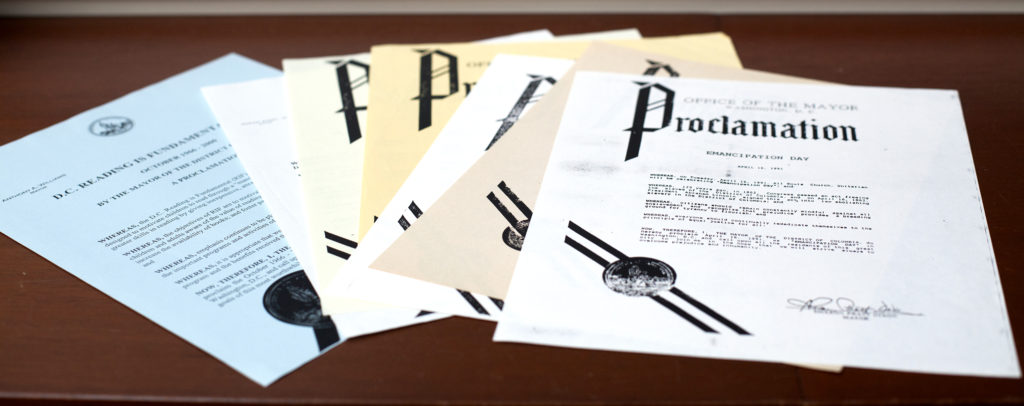
This blog post was adapted from Jessica Richardson Smith’s “Loretta Carter Hanes,” and “Milestone: Loretta Carter Hanes, 1926-2016,” by George Derek Musgrove (Washington History 29-1, spring 2017), and “Loretta Carter Hanes (1926-2016): A Force to be reckoned with,” by Peter Hanes.